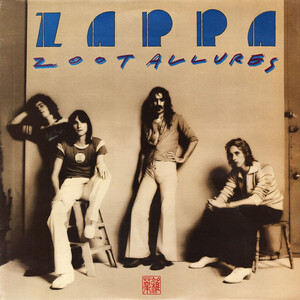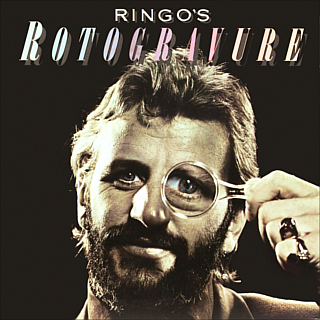Related Research Articles

Frank Vincent Zappa was an American musician, singer, composer, songwriter and bandleader. His work is characterized by nonconformity, free-form improvisation, sound experiments, musical virtuosity and satire of American culture. In a career spanning more than 30 years, Zappa composed rock, pop, jazz, jazz fusion, orchestral and musique concrète works, and produced almost all of the 60-plus albums that he released with his band the Mothers of Invention and as a solo artist. Zappa also directed feature-length films and music videos, and designed album covers. He is considered one of the most innovative and stylistically diverse musicians of his generation.

Some Time in New York City is a part-studio, part-live double album by John Lennon and Yoko Ono as Plastic Ono Band that included backing by the American rock band Elephant's Memory. Released in June 1972 in the US and in September 1972 in the UK on Apple Records, it is the third album to bear Lennon's name since he left the Beatles, and his fourth with Ono. Like Lennon's previous solo albums, it was co-produced by Lennon, Ono and Phil Spector. The album's agitprop lyrics are very politically charged compared to its predecessors, discussing political and social issues and topics such as sexism, incarceration, colonialism, and racism.

Joe's Garage is a three-part rock opera recorded by American musician Frank Zappa in September and November 1979. Originally released as two separate studio albums on Zappa Records, the project was later remastered and reissued as a triple album box set, Joe's Garage, Acts I, II & III, in 1987. The story is told by a character identified as the "Central Scrutinizer" narrating the story of Joe, an average adolescent male, from Canoga Park, Los Angeles, who forms a garage rock band, has unsatisfying relationships with women, gives all of his money to a government-assisted and insincere religion, explores sexual activities with appliances, and is imprisoned. After being released from prison into a dystopian society in which music itself has been criminalized, he lapses into insanity.

Sheik Yerbouti is a double album by Frank Zappa, released in March 1979 as the first release on Zappa Records It is mostly made up of live material recorded in 1977 and 1978, with extensive overdubs added in the studio. In an October 1978 interview, Zappa gave the working album title as Martian Love Secrets. It was later released on a single CD.

Good Singin' Good Playin' is the eleventh studio album by American rock band Grand Funk Railroad. The album was released on August 2, 1976, by MCA Records.

Hot Rats is the second solo album by Frank Zappa, released in October 1969. It was Zappa's first recording project after the dissolution of the original version of the Mothers of Invention. Five of the six songs are instrumental; while "Willie the Pimp", features vocals by Captain Beefheart. In his original sleeve notes, Zappa described the album as "a movie for your ears".

Burnt Weeny Sandwich is the sixth studio album by the American rock band the Mothers of Invention, and the ninth overall by Frank Zappa, released in 1970. It consists of both studio recordings and live elements. In contrast to the next album Weasels Ripped My Flesh, which is predominantly live and song-oriented, most of Burnt Weeny Sandwich focuses on studio recordings and tightly arranged compositions.

Thing-Fish is an album by Frank Zappa, originally released as a triple album box set on Barking Pumpkin Records in 1984. It was billed as a cast recording for a proposed musical of the same name, which was ultimately not produced by Zappa, but later performed partially in 2003, ten years after his death.

Zoot Allures is the 22nd album by the American rock musician Frank Zappa, released in October 1976 and his only release on the Warner Bros. Records label. Due to a lawsuit with his former manager, Herb Cohen, Zappa's recording contract was temporarily reassigned from DiscReet Records to Warner Bros.

The Shadows were an English instrumental rock group, who dominated the British popular music charts in the late 1950s and early 1960s, in the pre-Beatles era. They served as the backing band for Cliff Richard from 1958 to 1968, and have joined him for several reunion tours.

Shiny Beast is the tenth studio album by American band Captain Beefheart and the Magic Band, released in October 1978 by Warner Bros. Records. The album emerged from production difficulties surrounding Bat Chain Puller, an album Captain Beefheart recorded for DiscReet and Virgin Records in 1976. DiscReet co-founders Herb Cohen and Frank Zappa feuded over the production of the album, because Cohen funded the production with Zappa's royalty checks. Captain Beefheart recorded a new album titled Shiny Beast due to Zappa withholding the master tapes of the original Bat Chain Puller album.

Pretties for You is the debut studio album by American rock band Alice Cooper, released on June 25, 1969, by Straight Records. At this time, the name "Alice Cooper" referred to the band and not its lead singer Vincent Furnier. The album has a psychedelic flavor to it; the group had yet to develop the more concise hard rock sound that they would become famous for. Most of the tracks feature unusual time signatures and arrangements, jarring syncopation, expressive dynamics, sound effects, and an eclectic range of music influences. A few songs, such as "Levity Ball", show the influence of Syd Barrett-era Pink Floyd, with whom the band hung out during the British group's U.S. tour. Alice Cooper guitarist Glen Buxton stated he could listen to Barrett's guitar playing for hours on end.

Easy Action is the second studio album by the American rock band Alice Cooper, released by Straight Records in March 1970. The title comes from a line from one of the band's favorite films, the musical West Side Story. As with Pretties for You, the band's debut from the previous year, Easy Action was neither a commercial nor critical success. Singles include "Shoe Salesman" and "Return of the Spiders".

You Can't Do That on Stage Anymore, Vol. 6 is the last of six double disc collection volumes of live performances by Frank Zappa recorded between 1970 and 1988. All of the material on Disc one has a sexual theme. Zappa used the monologue in "Is That Guy Kidding or What?", to ridicule Peter Frampton's album I'm in You with its double entendre title and pop pretensions. Disc two includes performances from Zappa's shows between 1976 and 1981 at the Palladium in New York City, as well as material like "The Illinois Enema Bandit" and "Strictly Genteel" that he frequently used as closing songs at concerts. It was released on October 23, 1992 under the label Rykodisc.

Ringo's Rotogravure is the fifth studio album by Ringo Starr, released in 1976. It was the last project to feature active involvement from all four former Beatles before John Lennon's murder in 1980, and the second of two projects following the band's 1970 breakup to hold the distinction. Following the end of his contract with EMI, Starr signed on with Polydor Records worldwide.

Läther is the sixty-fifth official album by Frank Zappa. It was released posthumously as a three-CD set on Rykodisc in 1996. The album's title is derived from bits of comic dialog that link the songs. Zappa also explained that the name is a joke, based on "common bastardized pronunciation of Germanic syllables by the Swiss."

Wind of Change is the debut solo studio album by English musician Peter Frampton. It was released in 1972. This album features appearances by Ringo Starr, Billy Preston and Klaus Voormann.
"Willie the Pimp" is a song from Frank Zappa's 1969 album Hot Rats. It features an idiosyncratic Captain Beefheart vocal and one of Zappa's classic guitar solos. It is the only track that is not instrumental on the album, though the track features a long guitar solo.

You Are What You Is is a double album by American musician Frank Zappa. It was originally released as a double album in 1981 and later by Rykodisc as a 20-song CD.
"A Little Green Rosetta", by Frank Zappa, is the final song on the 1979 concept album Joe's Garage Acts II & III. The main character from this triple-album rock opera is faced with the decline of the music industry, and is forced to work on an assembly line placing little frosted rosettes on top of muffins at the Utility Muffin Research Kitchen facility
References
- ↑ Slaven, Neil (2009). Electric Don Quixote: The Definitive Story of Frank Zappa. London: Omnibus Press. p. 338. ISBN 978-0-85712-043-4.
- ↑ Fisher Lowe, Kelly (2007). The Words and Music of Frank Zappa. Lincoln: University of Nebraska Press. p. 21. ISBN 978-0-8032-6005-4.
- ↑ Halligan, Benjamin (2014). "From Countercultures to Suburban Cultures: Frank Zappa after 1968". In Whiteley, Sheila; Sklower, Jedediah (eds.). Countercultures and Popular Music. New York: Routledge. p. 196. ISBN 978-1-472-42106-7.
- ↑ Miles, Barry (2004). Zappa. London: Grove Press. p. 282. ISBN 978-1-78239-678-9.
- ↑ Kostelanetz, Richard; Rocco, John, eds. (1997). The Frank Zappa Companion: Four Decades of Commentary. New York: Schirmer Books. p. 32. ISBN 978-0-02-864628-2.
- ↑ Watson, Ben (1994). Frank Zappa: the Negative Dialectics of Poodle Play . London: Quartet. p. 353. ISBN 978-0-312-11918-8.